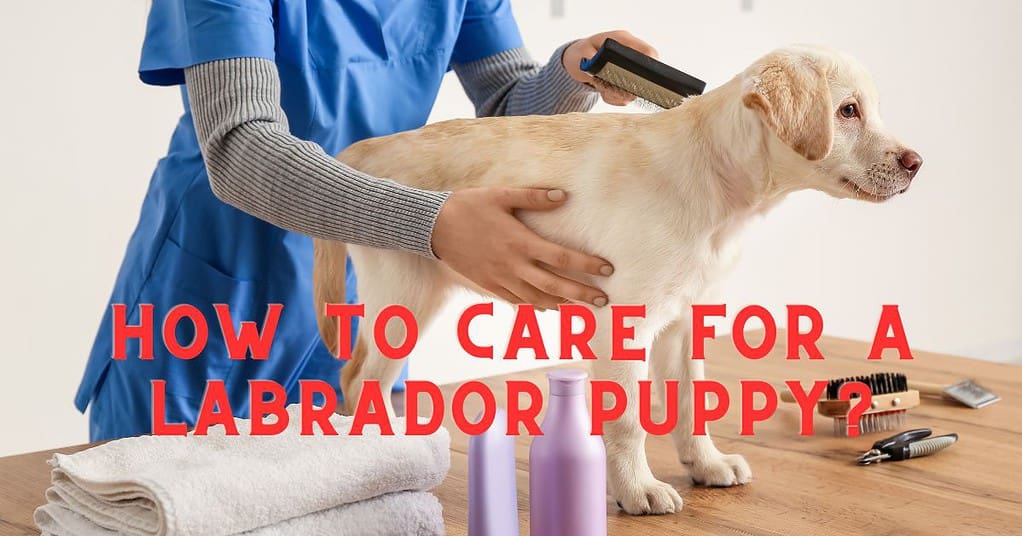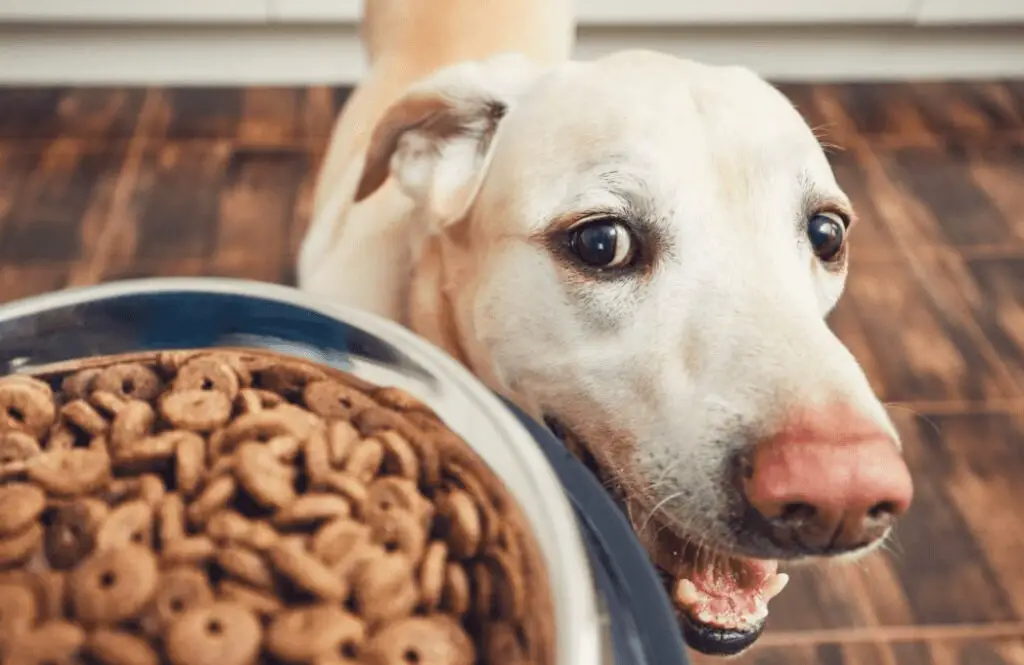Wanna decode, “why does my dog sleep under my bed?” Dogs often sleep under the bed because it provides a sense of security and safety, similar to hiding during a storm. The enclosed space creates a surrounding environment that many dogs find comforting.
This inclination towards feeling surrounded is also evident in their preference for spending time in crates, where they can experience a similar sense of security.
why does my dog like to sleep under my bed?
Comfort And Security
One of the several reasons dogs sleep under the bed is for comfort and security. The enclosed space mimics a safe den-like setting, providing them a sense of safety.
When your dog curls beneath your bed, it may be tapping into an instinctive need for shelter that helps them feel protected.
Being close to their owners provides dogs with emotional comfort. As pack animals, our furry friends naturally crave companionship.
Snoozing near you provides warmth and increased connection within the “pack.” So when Jasper snuggles in for a night’s rest beneath your bed, he finds solace in the physical security of this confined niche.
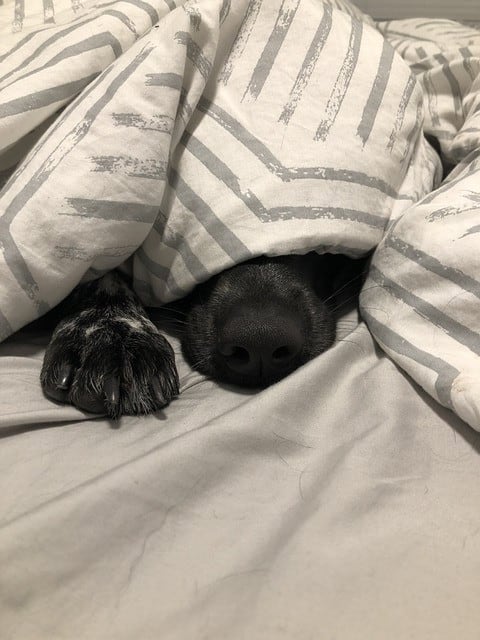
Fear Or Anxiety
Fear or anxiety is a common reason why dogs sleep under beds. When faced with loud noises from thunderstorms or fireworks, dogs seek refuge in small spaces that give them a sense of security. During these events, many dogs bolt to hide under the bed.
This behavior can be attributed to the environment as well. For example, moving to a new home or introducing another pet can trigger uneasy feelings. As a result, they tend to find solace in familiar spots like sleeping under your bed where it smells of you.
Try to recognize potential stressors and create positive associations with those triggers. Comforting items such as toys or blankets help alleviate anxiety while reinforcing positive reinforcement techniques.
Illness Or Injury
Dogs sometimes sleep under the bed because they feel ill or injured. The protected spaces provide protection when feeling ill.
Dogs instinctively try to find a comfortable spot when sick or in pain. Be observant of any signs of illness or injury, such as loss of appetite, lethargy, vomiting, diarrhea, limping, or whimpering. It’s best to visit the vet immediately if you notice something off.
Seeking Food Or Stashing A Toy
Dogs love finding hidden treasures being natural scavengers. That’s why they may try to stash their favorite toy or a tasty treat under your bed. The dark, cozy space appeals to them as it gives them privacy and security.
It’s primarily harmless behavior. However, ensure no food that could attract ants or mice is left out. As long as your pet is not showing signs of aggression or guarding the objects they’ve stashed, there’s nothing to worry about.

Change In Environment
Dogs are highly sensitive to changes in their surrounding environment. A new family member or pet can cause your dog to feel stressed. Moving homes can be traumatic for dogs since they thrive on familiarity and routine.
You must provide reassurance and stability. This could include keeping a familiar toy close by or providing an enclosed space like a crate that offers security and privacy.
Some dogs may also sleep under the bed simply because it’s cooler than other parts of the house in warmer months.
If you notice them seeking cool locations during hot weather, consider providing alternative cooling methods like air conditioning.
Playfulness Or Excitability
Some dogs are playful and excitable, so that they may sleep under your bed. Dogs love to play and often seek spaces to hide. They also enjoy sleeping there as it gives them comfort.
If your dog is exuberant, you may find them diving under the bed during playtime as part of their game. Some dogs even create dens or forts for themselves with blankets.
Ensuring they have a safe space to play, and rest is essential. Provide toys for them to enjoy inside and outside their hiding spot. Encourage positive behavior so that they know this is acceptable behavior.
Cooler Temperatures
Another reason is it can be cooler underneath. Dogs have a higher body temperature than humans, so they prefer cooler temperatures. The space under the bed provides shade and reduces exposure to heat.
This desire for cooler temperatures is particularly true for dogs with thicker coats. For example, Labrador retrievers and Golden Retrievers have thick coats, making them uncomfortable when sleeping in warm areas.
By seeking out cooler locations, dogs naturally find ways of regulating their body temperature. Ensure they drink fresh water and have a comfortable environment throughout the night.
Familiar And Comforting Smell
Dogs have a fantastic sense of smell and can easily recognize their owner’s scent. This is why dogs prefer sleeping under or near their owner’s bed.
The familiar and comforting smells make them feel secure. Dogs find comfort in the smell of their bedding or toys that are kept under the bed. These carry a strong scent that reminds them of home and calms them.
If your canine suddenly starts sleeping under the bed, it could be a sign of stress or fear, so keep an eye.

The Psychology Of Dens
Dogs have an instinctive need for den-like spaces, deeply ingrained in their psychology. A small, closed space where they can retreat is cool for them. In the wild, dogs often create dens in safe areas to protect themselves from predators or harsh weather.
As pets, they may seek similar environments that mimic their instincts. This could be why they enjoy sleeping under beds. Providing your furry friend with a designated “den” can go a long way in keeping them happy.
- Dogs prefer dens that are just big enough for one dog, so finding the perfect size is essential. They should feel snug and protected but not cramped or trapped.
- They enjoy comfort and security within enclosed spaces that resemble the warmth they felt with their mother during their early days.
- It can also reduce depression by giving him a spot where he feels safe and relaxed. This is important if you notice other signs of stress or anxious behavior from your pet.
- A designated sleeping spot may provide the perfect den for your pup to unwind
Concerns And Solutions For Sleeping Under Beds
Dog owners may have concerns when their pet sleeps under the bed, such as potential health issues or behavioral problems. Still, there are various solutions to address these concerns, including crate training, medication, and positive reinforcement.
Visit The Vet
Regular visits to the vet are crucial for your dog’s health and well-being, including addressing issues that may impact their sleep habits.
As they age, they may develop arthritis that could cause discomfort while lying. A veterinarian can diagnose these issues and provide treatment options.
A vet can also address behavioral issues such as anxiety that may be causing your dog to seek refuge under the bed. For example, if loud noises such as thunderstorms or fireworks trigger your dog, a veterinarian can recommend anti-anxiety medication or desensitization training.
You can keep your dog healthy and happy by staying up-to-date on preventative care and seeking medical attention when necessary.
Get Them A Crate
One effective way is to get them a crate. Crates provide dogs with their designated space to feel safe and secure. This is helpful for anxious ones who seek out protective spaces, such as under the bed, for comfort.
- To start crate training, choose the right size of crate for your dog, one where they can stand and turn around comfortably.
- Introduce the crate gradually by placing treats or toys inside, encouraging them to explore.
- Once your dog is comfortable with the crate, begin feeding them meals inside it with the door open.
- Gradually lengthen the time in the crate until they are comfortable staying inside for a long.
- Be patient, as some dogs may take longer than other dogs to adjust.
- Never use crates for punishment or confinement. Your dogs should see them as safe spaces to retreat when stressed.
You can create an environment that promotes positive sleep behavior with a crate that meets your dog’s size needs and is comfortable.
Crate training also helps with potty training by giving puppies a designated area to eliminate while promoting bladder control. It also offers a safe place when guests are over or during storms.
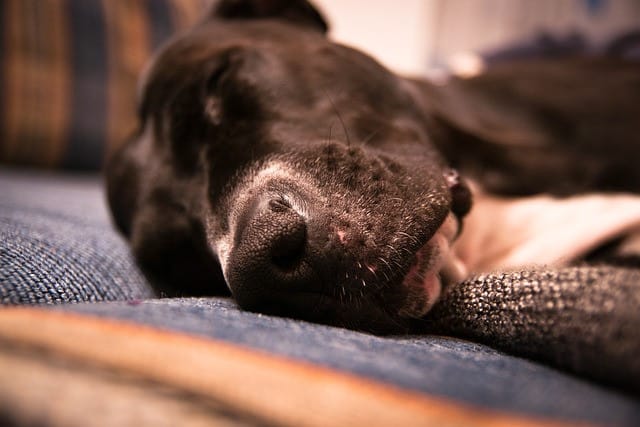
Use Anti-Anxiety Medication
A veterinarian may recommend anti-anxiety medication if your dog sleeps under the bed due to anxiety and stress.
Some common medications for treating anxiety in dogs include Alprazolam, Clomicalm, and Diazepam. However, these medicines have side effects like drowsiness or increased appetite.
Keeping your dog calm is key when trying new things, such as anti-anxiety medication or training methods.
Desensitization Training For Anxiety
Desensitization training can calm anxious dogs suffering from separation anxiety. This involves exposing the dog to the low-intensity trigger and increasing it slowly until it is no longer afraid.
For example, if your dog is afraid of thunderstorms, play soft recordings of thunder and gradually increase the volume till they become comfortable. This desensitizes them to sound, making them less anxious.
Counterconditioning is another effective technique. For instance, whenever you expose them their fear trigger during desensitization training, reward them immediately with treats or praise. This will help your dog associate their fear trigger with positive experiences instead of negative ones.
Give Them A Treat When They Come Out
Giving your dog a treat when they come out from under the bed encourages them to spend more time outside their hiding spot. This allows dogs to associate leaving their safe space with something rewarding, making it likelier for them in the future.
When using treats as a reward, choose healthy options. Avoid human foods that may be unhealthy, such as chocolate or high-fat snacks.
While this technique can help manage mild anxiety, it may not work for all dogs. If your pet has severe anxiety, consult your veterinarian.
Create A New Safe Spot
Provide a cozy environment with their favorite toys, blanket, or bed in a crate or small room. This way, your dog feels secure in their special place. Add familiar and comforting smells, such as your old t-shirt, to help ease their anxiety.
However, this doesn’t guarantee your pet will stop hiding under the bed entirely. Dogs seek security and comfort in spaces like dens.
Provide alternatives so they can choose where to spend time during stressful moments.
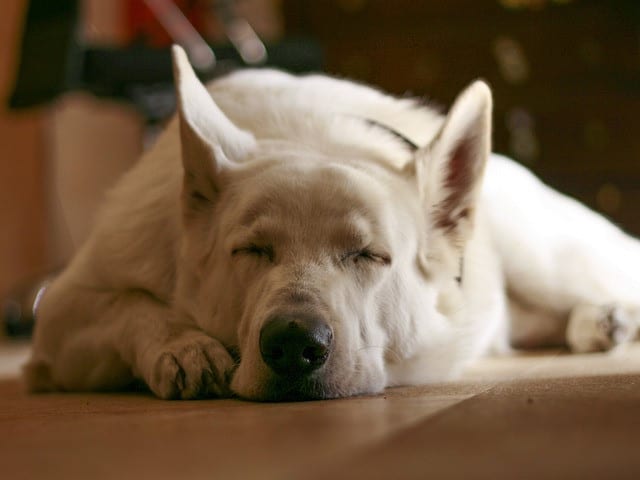
Heat Or Cool Your Bedroom ( More comfortable temperature )
A bedroom’s temperature can affect your dog’s behavior and where they choose to sleep. If the room is too warm, your dog may prefer to sleep on cooler surfaces like tiles or hardwood floors.
But, if the room is too cold, they may seek warmth under beds or blankets. Hence, it’s essential to regulate the temperature of your bedroom.
Consider investing in an air conditioning unit and keeping the thermostat comfortable. Providing extra bedding or a heated pet bed for colder temperatures can make all the difference.
Also, be mindful of drafts from windows or doors that could affect their sleeping spot. Keeping your bedroom at a consistent temperature will reduce disruptions to your sleep pattern.
Use A Thundershirt
A Thundershirt is a popular solution. This type of shirt applies gentle pressure to a dog’s body, helping them relax during frightening situations.
Not all dogs will respond positively to this treatment. While the shirt itself can be helpful in calming anxiety, it should never replace proper behavior training and medical care.
Use it correctly only under veterinary guidance.
Make The Area Under Your Bed Less Inviting
There are ways to discourage this behavior. Try blocking access to the area with boxes or other furniture.
Ensure your dog has an alternative sleeping spot nearby, like a cozy dog bed. Add their favorite toys and blankets to encourage them to sleep elsewhere.
Another way is by cleaning up any clutter or rubbish accumulated over time. This will discourage your dog from wanting to sleep under there. Use positive reinforcement techniques if your dog chooses an alternative place for snoozing.
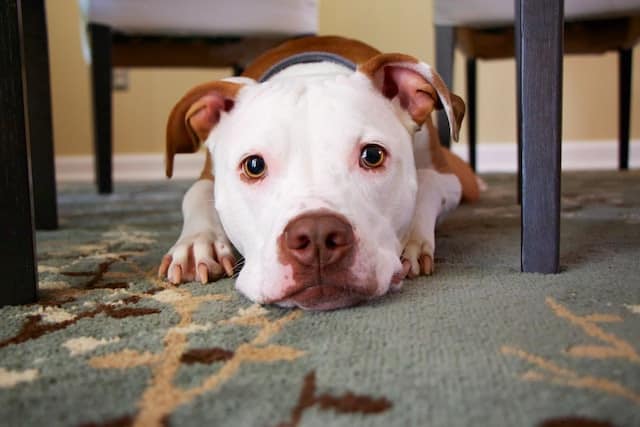
Where Can My Dog Sleep?
Many dogs like sleeping under tables or desks. These resemble a dog house or den, providing security. A table can especially appeal to those that may feel anxious or overwhelmed in large open spaces.
Ensure no sharp edges on the table is great. Consider adding a soft blanket for added warmth. You can also place toys or treats nearby. It is best to get them to sleep on their own bed, dog beds, or crates.
Why Does My Dog Stare At Me?
Dogs stare at their owners while they sleep, making them feel safe. Mutual staring releases oxytocin – the love hormone – strengthening the bond between a dog owner and pet.
A dog staring at their owner is a way of expressing their devotion. Dogs are herd animals that rely on social cues to communicate. Your pup may try to get your attention or tell you something when it stares.
If your dog’s gaze is prolonged or accompanied by growling or barking, it could indicate pain or separation anxiety.
FAQs On Why Does My Dog Sleep Under My Bed?
Is It Safe For My Dog To Sleep Under The Bed?
The answer is yes, as long as no hazards or dangers exist. However, it may not be ideal. Some have allergies that could worsen due to pet hair and dander. Ensure there are no sharp objects or loose wires under the bed.
Do Dogs Hide When They Are Sick?
Yes, dogs often hide when they are sick or feeling unwell. This dog behavior can be attributed to their desire for comfort and protection.
Why Shouldn’t You Let Your Dogs Sleep In Your Bed?
Firstly, it can disrupt sleep and lead to fatigue or mood swings. Secondly, sleeping with pets can aggravate allergies or asthma symptoms. Thirdly, they may exhibit sleep reactivity, behaving unpredictably while asleep, potentially harming their owners.
When To Be Concerned About Your Dog Sleeping Under The Bed?
Be concerned only if this behavior is out of character for your dog or accompanied by increased anxiety or illness. Then seek veterinary attention at once. Persistent hiding under the bed could also indicate a health problem
Why Does My Dog Follow Me Everywhere?
Many dog owners experience their pets following them around everywhere they go. One reason is boredom or a need for attention.
Dogs thrive on social interaction; if they feel left out or ignored, they may follow you around seeking attention.
Do Dogs Protect You When You Sleep?
They are inclined to guard their owner at night. For instance, German Shepherds are courageous and highly perceptive of danger, making them great watchdogs. However, not all are wired to act as protectors or guardians. It depends on temperament and training.
Can My Dog Breathe If He Likes To Sleep Under The Covers?
Yes, they can breathe under the covers, but don’t let them stay for long. They are highly unlikely to suffocate under blankets while sleeping, but keeping an eye on them is awesome.
Author Profile
- Site Owner And Dog Lover
-
Aritra, the founder of Labradorandyou.com, is a lifelong dog lover whose passion ignited for Labradors for their loyalty and intelligence. With extensive research and personal experiences, Aritra has become a Labrador expert, offering a rich resource on the breed. Labradorandyou.com provides reliable, timely, and evidence-based information, including Labrador-specific product reviews, training techniques, and care tips.
Labradorandyou.com was born out of Aritra's passion and his desire to share his profound knowledge about the breed. The site serves as a comprehensive resource, offering a wealth of up-to-date information for Labrador owners and enthusiasts alike
Also by the author
-
 Lab-TypesNovember 17, 2023Old Dog Seizures: Causes, Symptoms, and Treatment Options
Lab-TypesNovember 17, 2023Old Dog Seizures: Causes, Symptoms, and Treatment Options
-
 Lab-TypesNovember 17, 2023Why Is My Dogs Poop Yellow? 8 Reasons & Solutions
Lab-TypesNovember 17, 2023Why Is My Dogs Poop Yellow? 8 Reasons & Solutions
-
 ReviewsNovember 17, 2023The Only Hill’s Science Diet Review You Need To Read
ReviewsNovember 17, 2023The Only Hill’s Science Diet Review You Need To Read
-
 Lab-TypesNovember 17, 2023How To Adopt An Emotional Support Dog?
Lab-TypesNovember 17, 2023How To Adopt An Emotional Support Dog?
